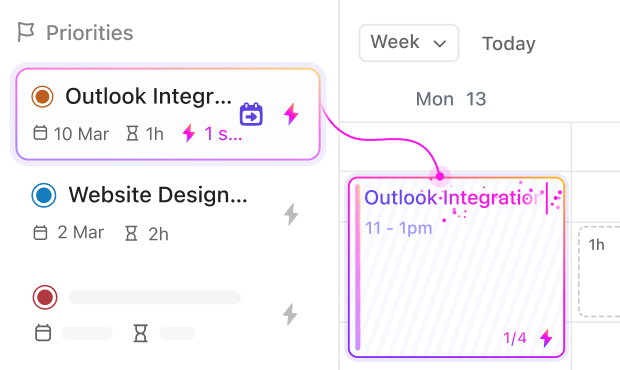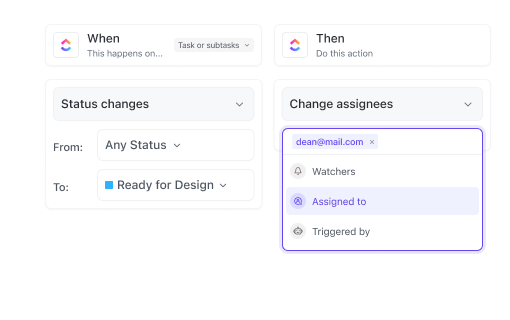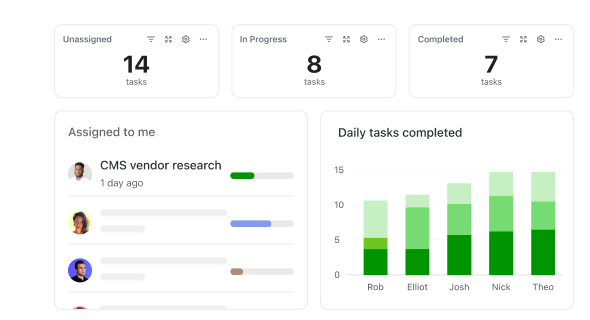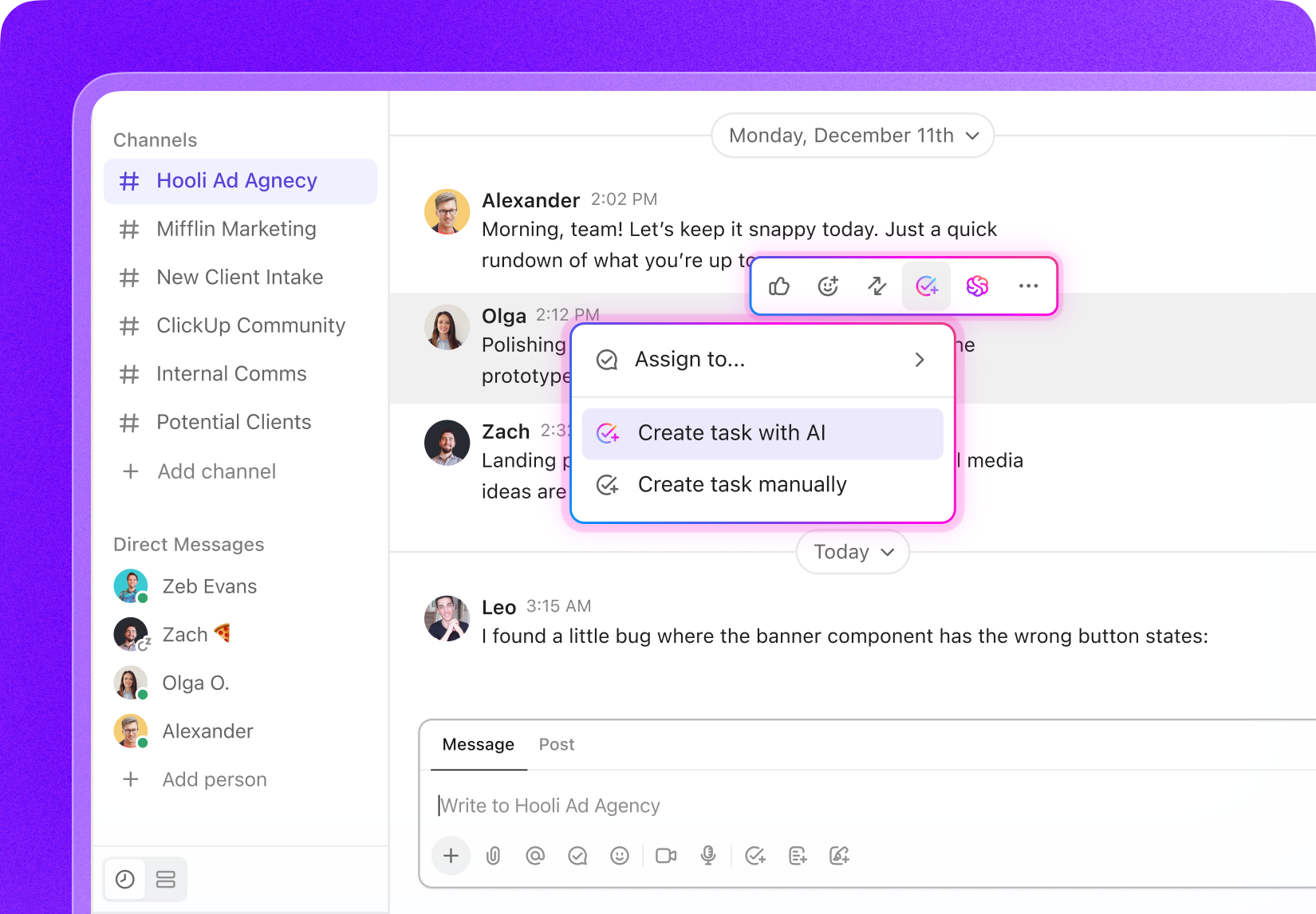Task Management for Logistics Teams
Task Management Software Tailored for Logistics Professionals
Coordinate shipments, monitor delivery milestones, collaborate effortlessly with your team, and gain full visibility over every logistics operation stage.
Trusted by the best
Challenges in Logistics
Why Logistics Teams Need Robust Task Management
Without a centralized system, logistics operations face delays, miscommunication, and operational inefficiencies that impact delivery and customer satisfaction.
- Complex supply chains cause delays — tracking shipments manually leads to missed deadlines and lost parcels.
- Inventory management gaps — misplaced or overstocked items increase costs and reduce responsiveness.
- Poor route planning — inefficient scheduling wastes fuel and time.
- Communication breakdowns — unclear task ownership slows problem resolution.
- Last-minute changes cause chaos — sudden order updates disrupt workflows without real-time visibility.
- Compliance risks grow — missing documentation and audit trails jeopardize regulatory adherence.
- Limited performance insights — lack of clear metrics hinders continuous improvement.
- Resource conflicts arise — vehicle availability and driver schedules overlap, delaying deliveries.
Traditional Methods vs ClickUp
Why Conventional Logistics Tools Fall Short
Discover how ClickUp enhances logistics operations beyond traditional tracking methods.
Traditional Logistics Management
- Tasks spread across spreadsheets, emails, and phone calls
- Manual tracking leads to missed shipments and delays
- Inventory data often outdated or inaccurate
- Route plans created without real-time updates
- Communication scattered across platforms
- Compliance paperwork handled separately and inconsistently
ClickUp Task Management
- Centralized task lists with real-time status updates
- Automated shipment tracking and alerts
- Integrated inventory monitoring with custom fields
- Dynamic route planning with dependencies and priorities
- Unified communication with comments and mentions
- Comprehensive audit trails and document storage
Use cases
How Task Management Software Transforms Logistics Operations
See how structured task management reduces errors and accelerates workflows.
#UseCase1
Eliminating Shipment Tracking Gaps
ClickUp consolidates all shipment details, updates, and documents in one place, ensuring no package goes unaccounted for.
#UseCase2
Ensuring Inventory Accuracy Across Warehouses
Track inventory movements and stock levels with real-time updates, minimizing overstock and shortages.
#UseCase3
Coordinating Drivers and Delivery Schedules Efficiently
Assign tasks with clear deadlines and monitor progress to avoid route overlaps and delays.
#UseCase4
Maintaining Compliance with Regulatory Requirements
Store and track all necessary documents, certifications, and audits to stay inspection-ready.
#UseCase5
Automating Order Fulfillment Processes
Use templates and checklists to standardize packing, labeling, and shipping procedures, reducing errors.
#UseCase6
Optimizing Last-Mile Delivery
Leverage dependencies and priorities to adapt routes dynamically and improve delivery success rates.
#UseCase7
Monitoring Performance Metrics in Real-Time
Dashboards provide insights into delivery times, costs, and driver efficiency for continuous improvement.
#UseCase8
Streamlining Communication Across Teams
Centralized comments and notifications keep dispatchers, drivers, and warehouse staff aligned.
#UseCase9
Managing Unexpected Disruptions Proactively
Turn sudden changes into actionable tasks with assigned owners and clear deadlines for swift resolution.
Key Beneficiaries
Who Benefits Most from ClickUp in Logistics?
Ideal for logistics professionals seeking a unified platform to manage complex operations.
If you’re a Logistics Manager
Coordinate teams, schedules, and shipments efficiently to meet deadlines and reduce costs without juggling multiple tools.

If you’re a Warehouse Supervisor
Maintain accurate inventory records, track stock movements, and ensure compliance with safety protocols effortlessly.

If you’re a Fleet Coordinator
Schedule drivers, optimize routes, and monitor vehicle maintenance to maximize fleet performance and minimize downtime.

How ClickUp Helps
Streamline Every Phase of Your Logistics Process
Manage shipments, inventory, and delivery without switching between tools.
Centralize Operations
Keep shipment details, driver assignments, and inventory data organized in one platform with real-time updates.
Plan Deliveries Strategically
Break down logistics workflows into stages with task lists, dependencies, and visual timelines.
Standardize Procedures
Use templates and checklists for packing, loading, and safety inspections to ensure consistency.
Collaborate Seamlessly
Assign clear responsibilities to team members and communicate directly within tasks to prevent misalignment.
Turn Issues Into Actionable Steps
Convert delivery delays or inventory shortages into tasks with owners and deadlines for quick resolution.
Stay Ahead of Deadlines
Automate reminders for shipment cutoffs, maintenance, and compliance audits to avoid costly penalties.
